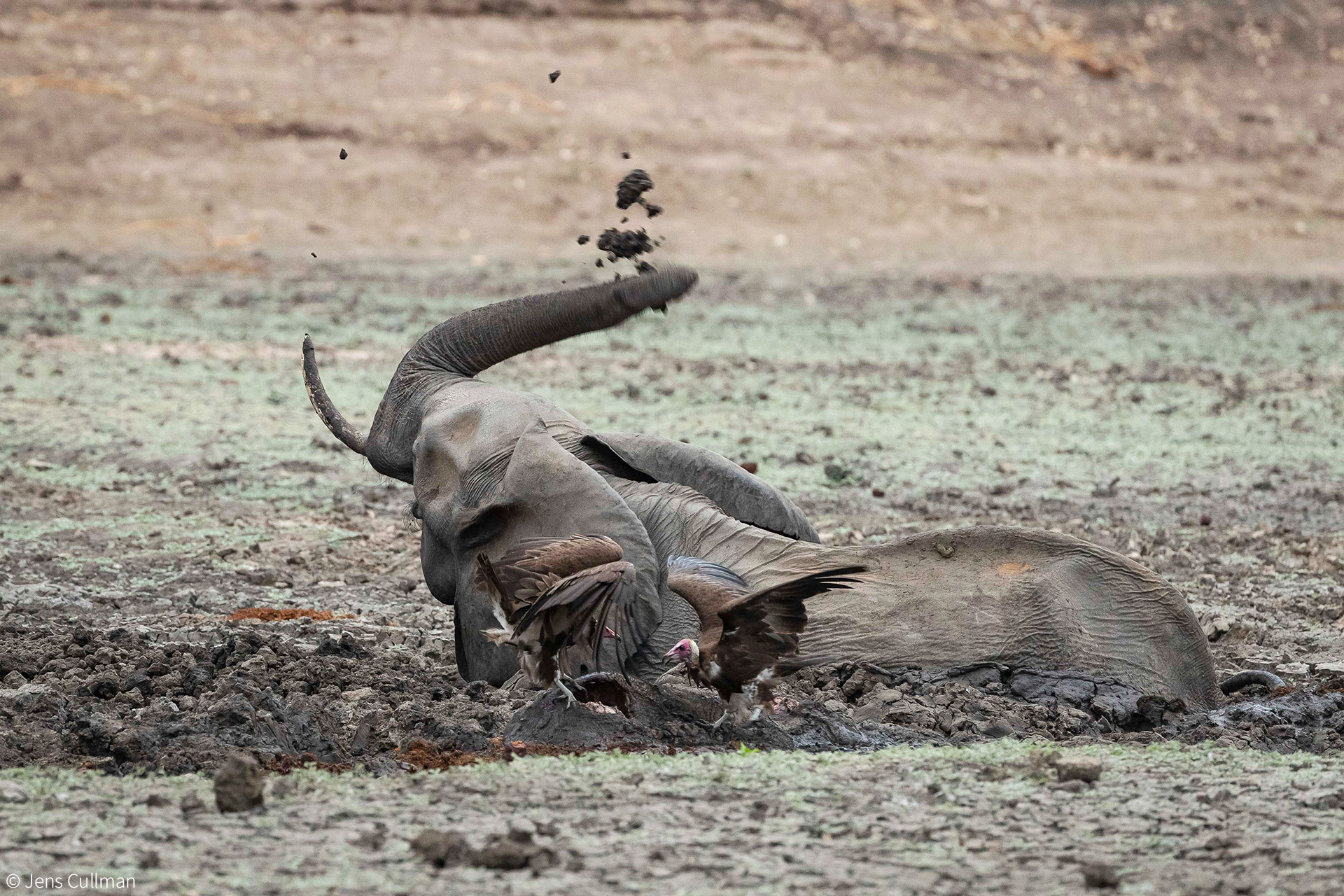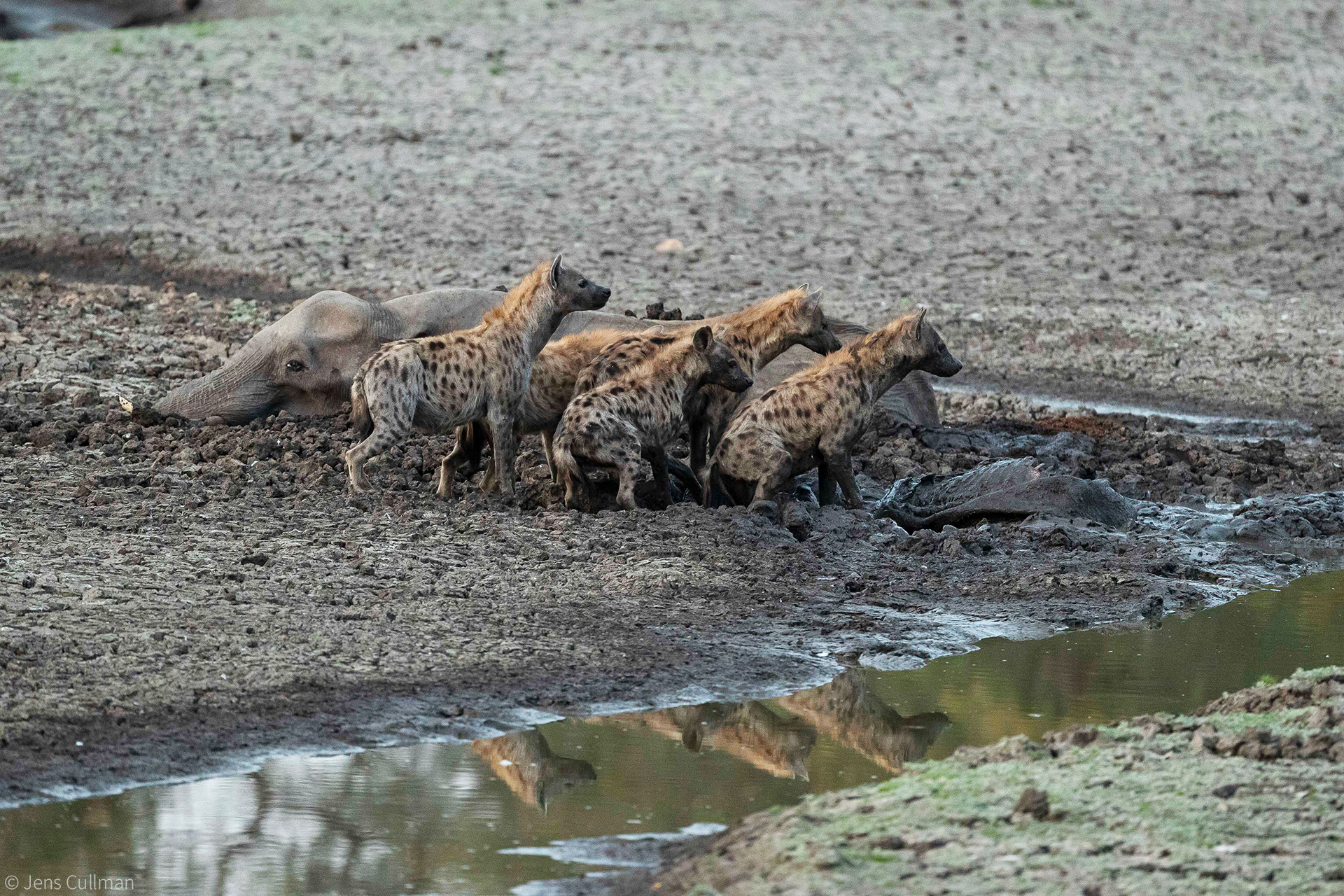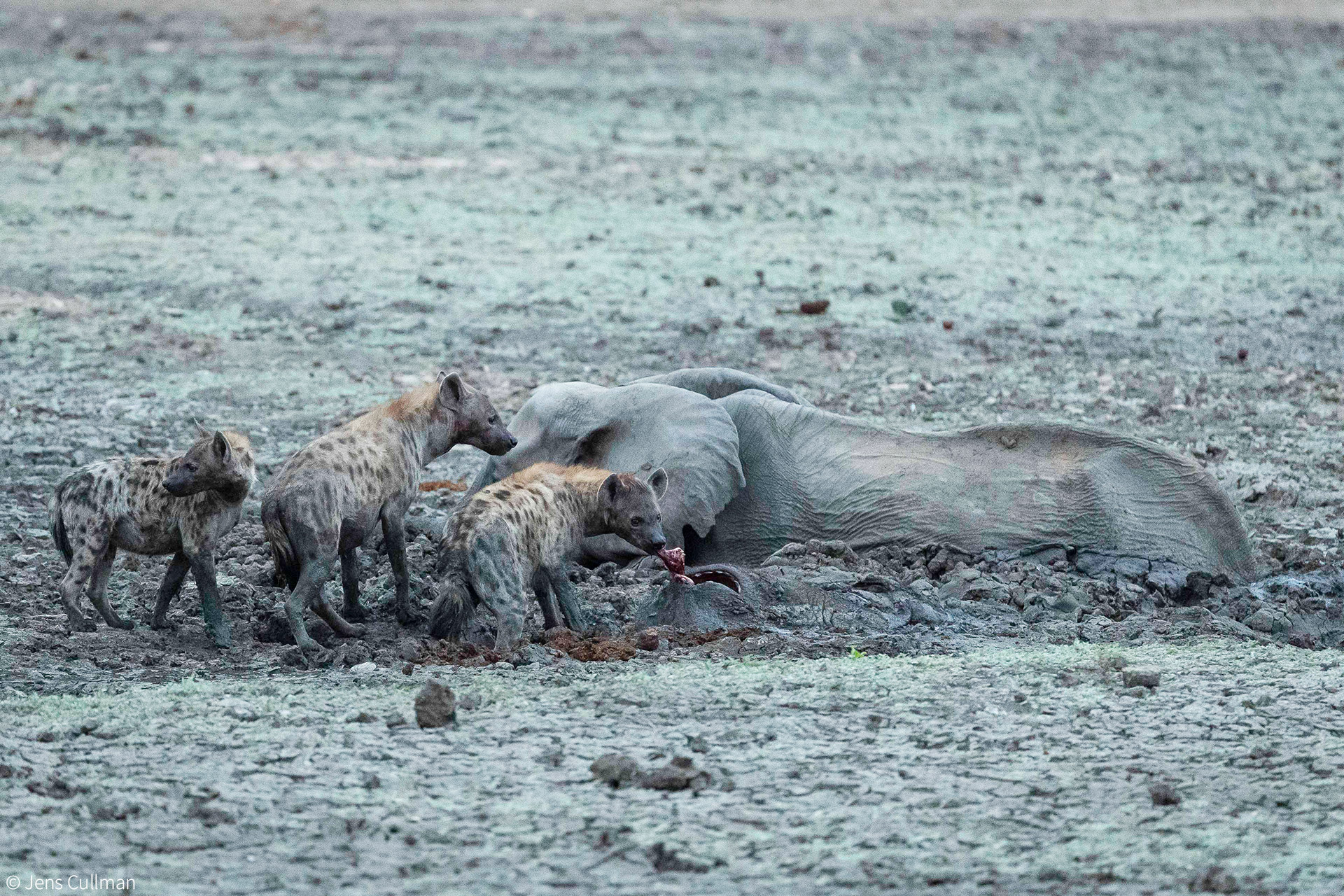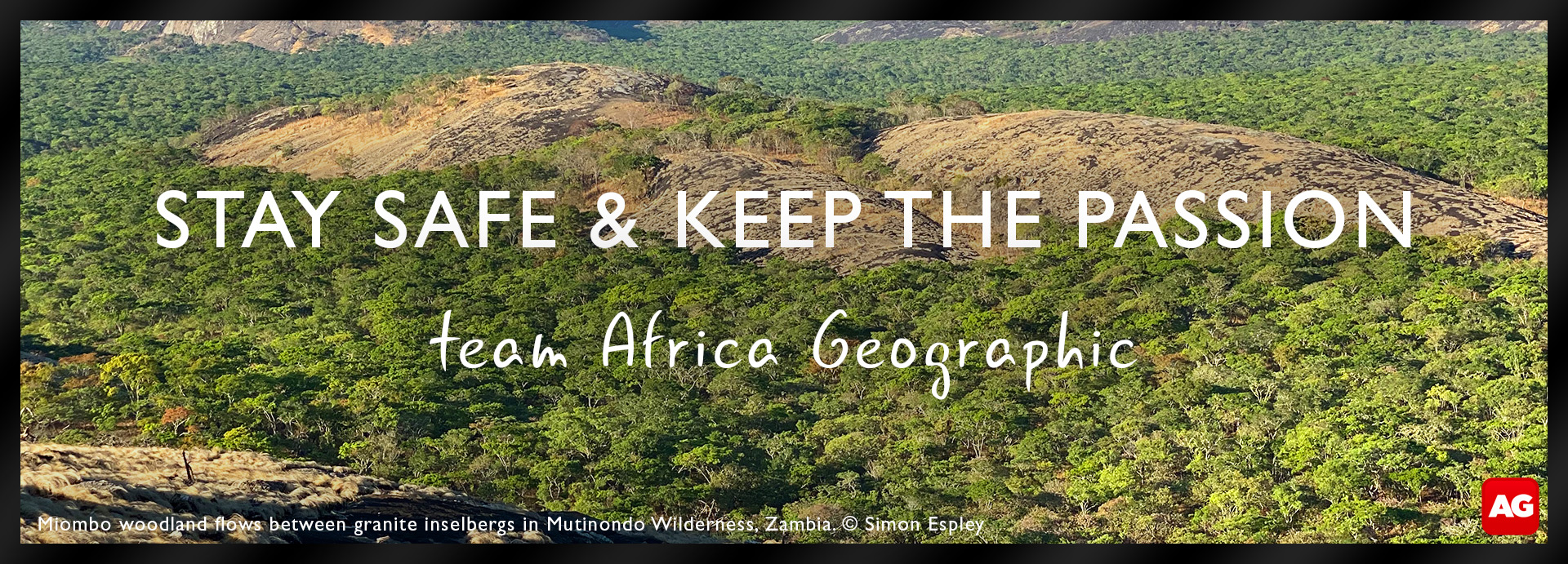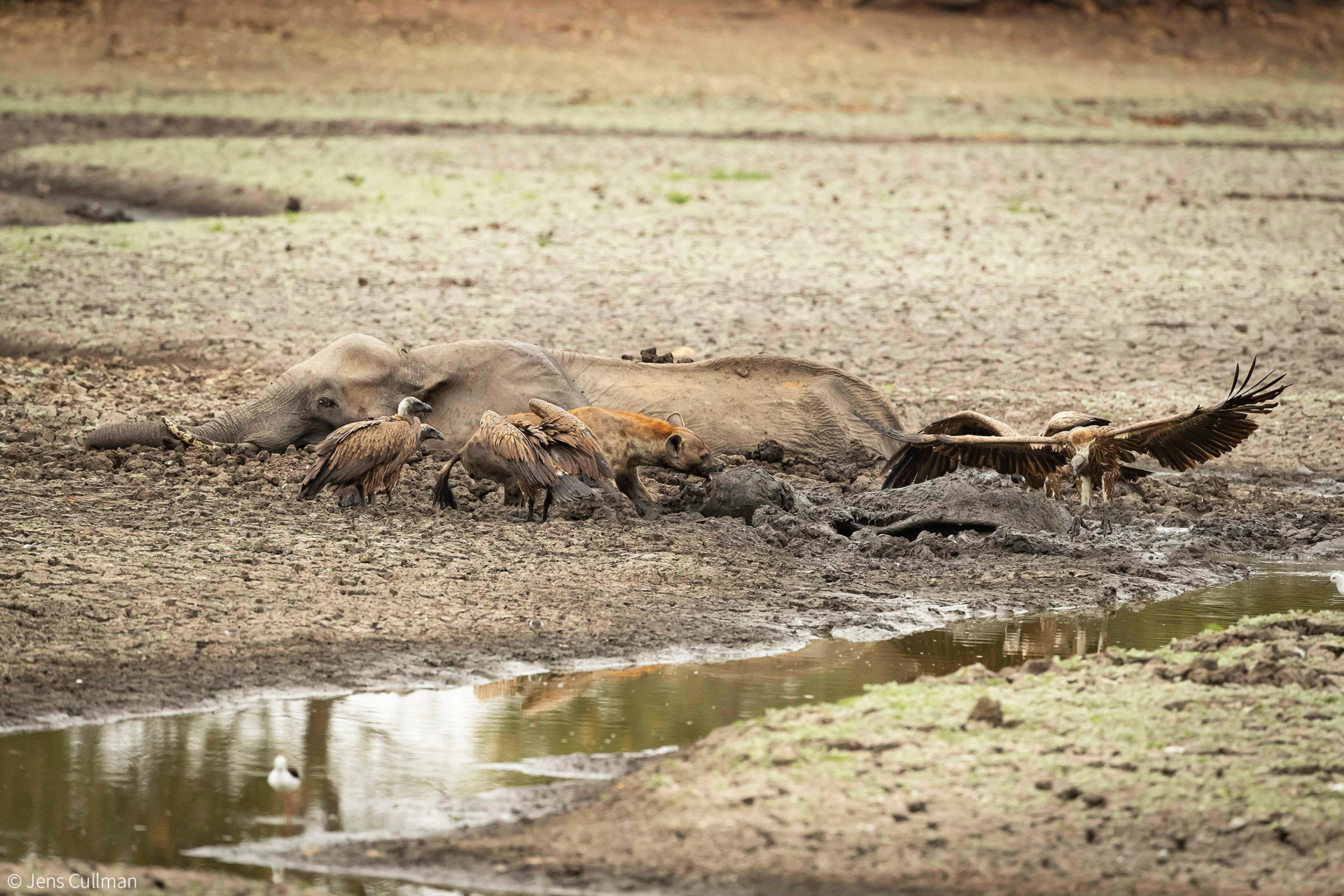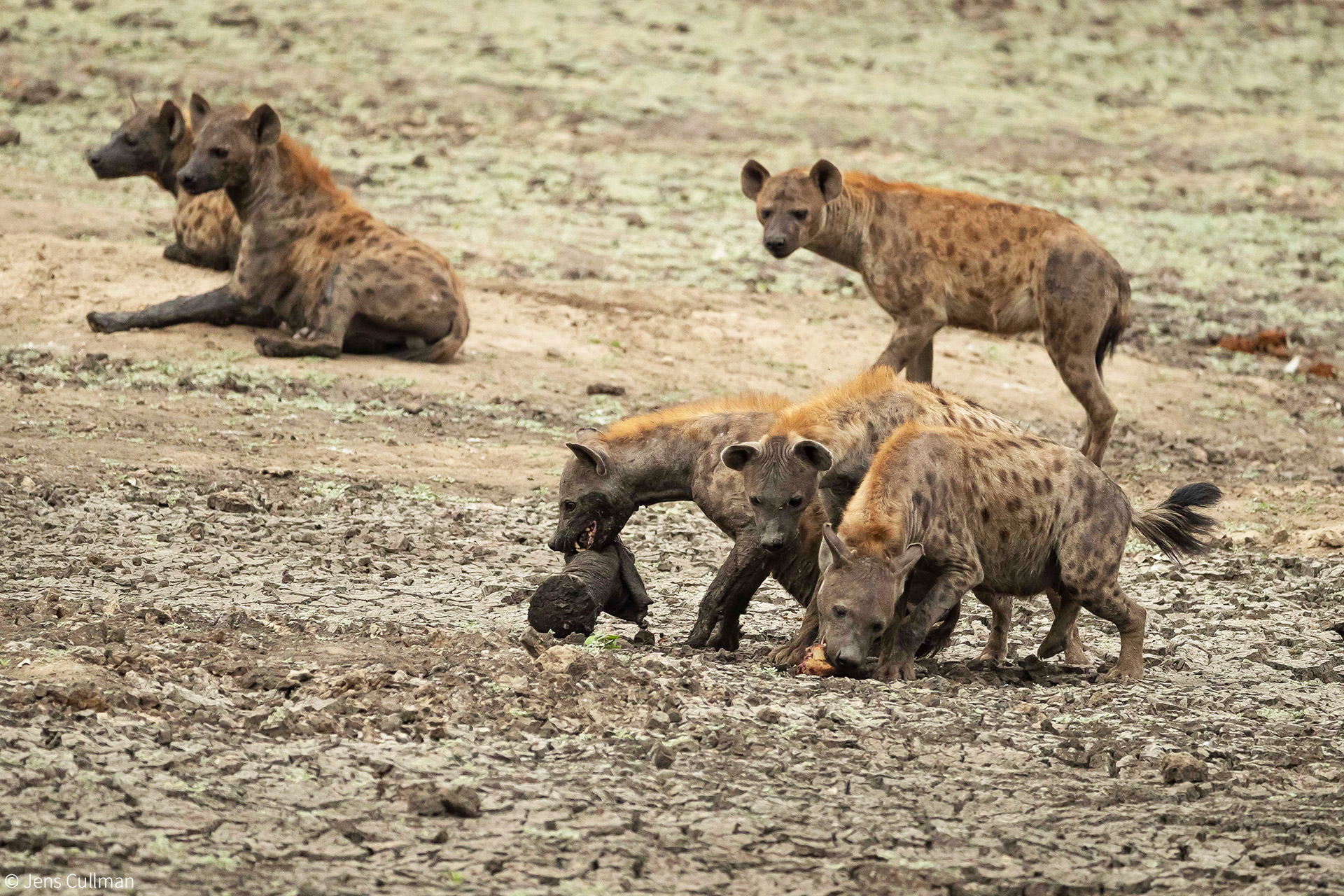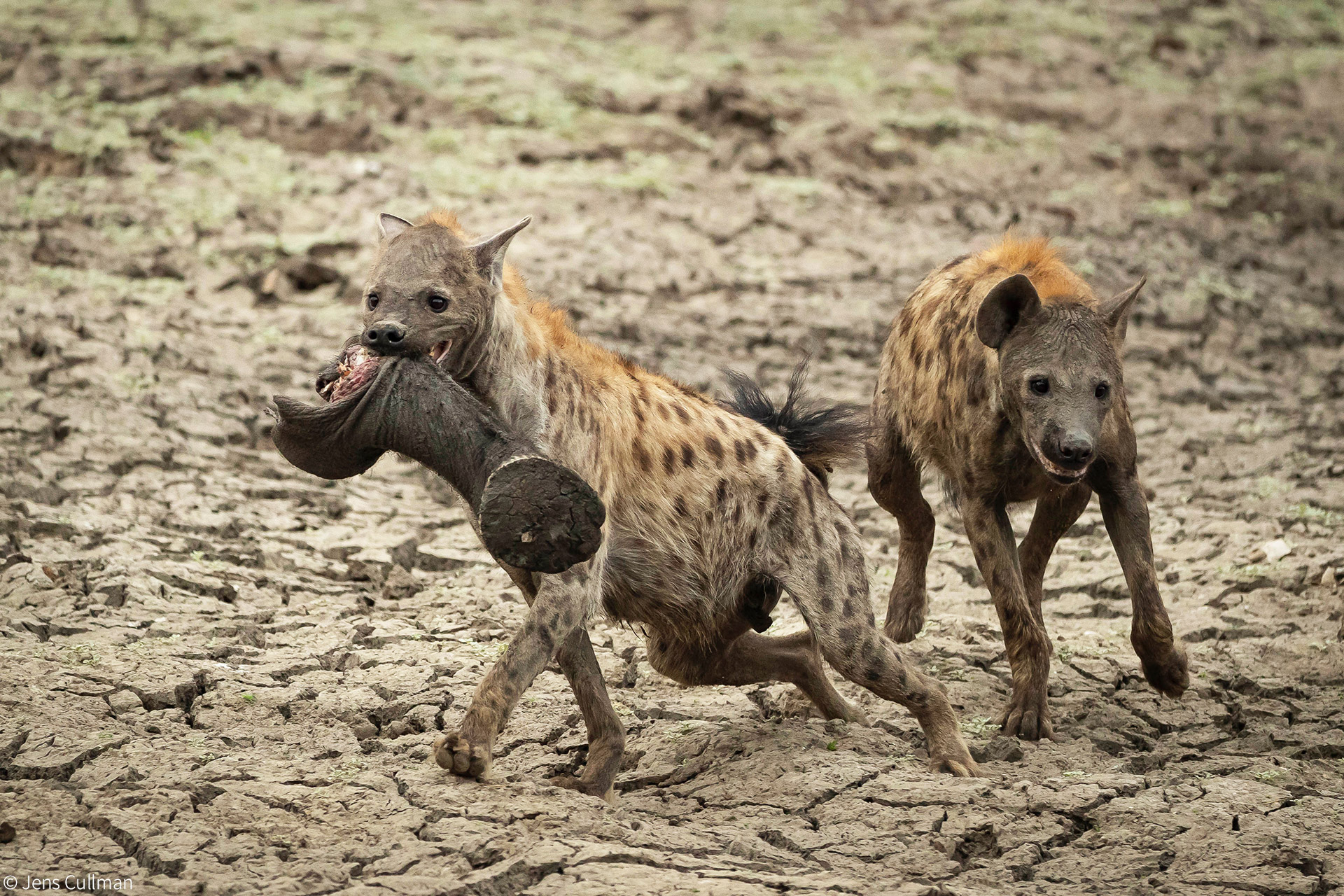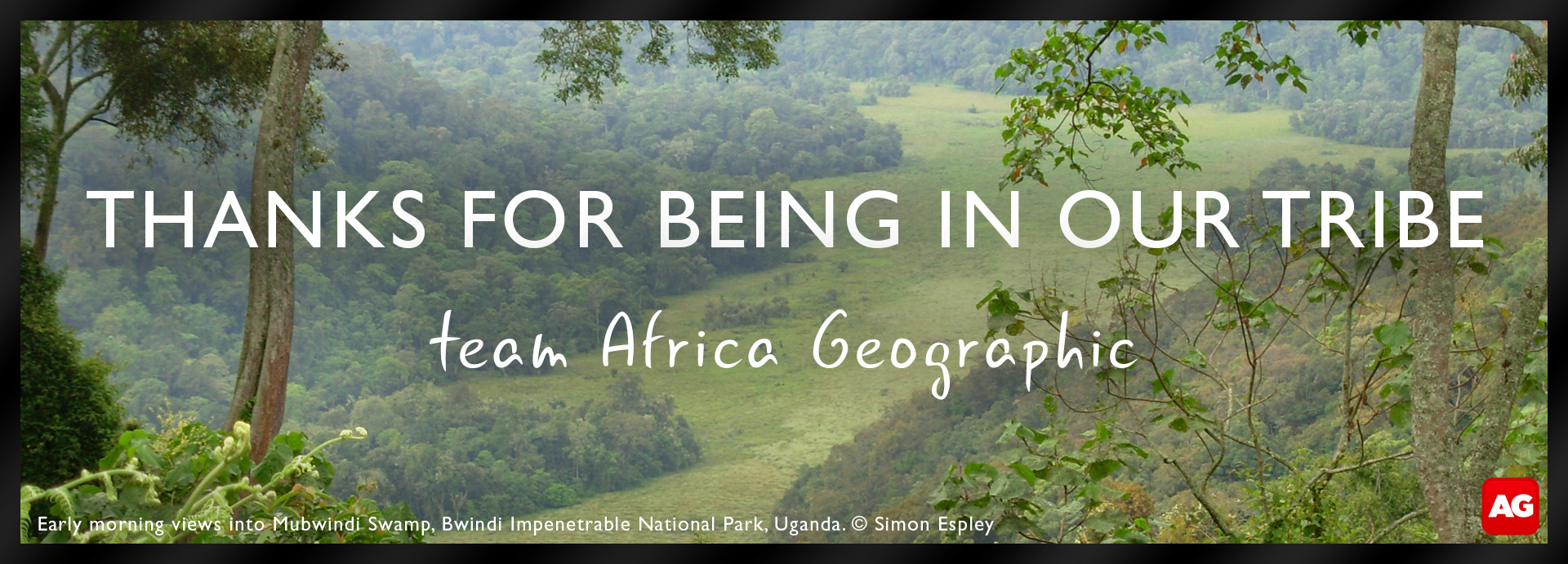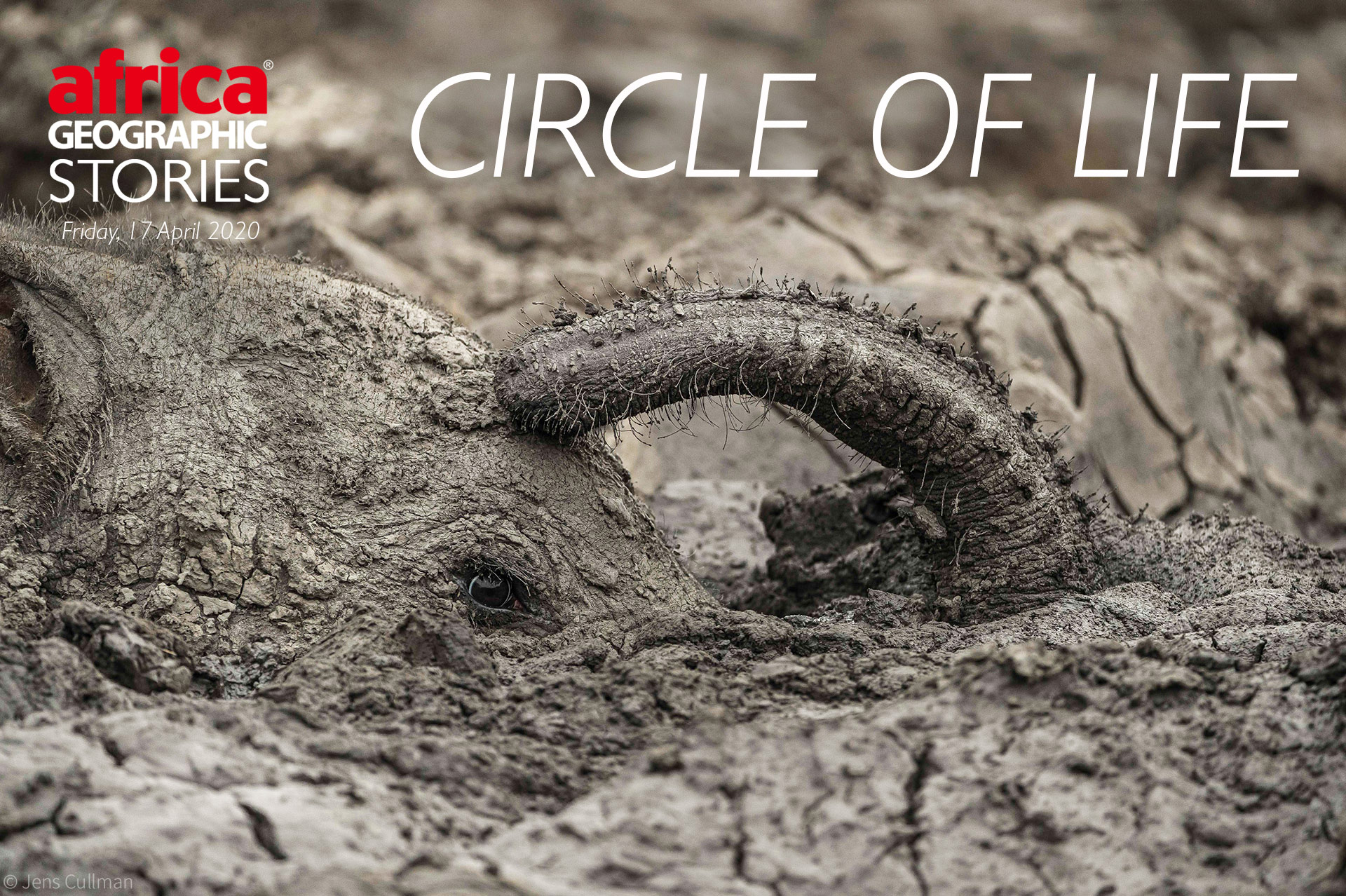
Hyenas eat baby elephant while its mother watches helplessly
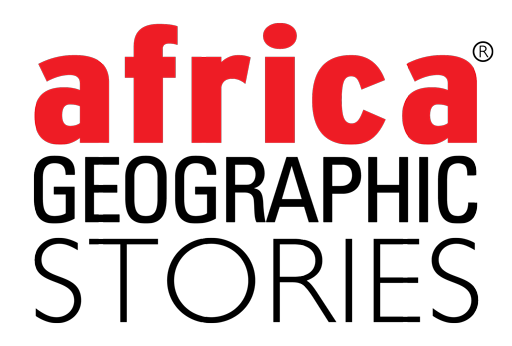
![]()
A baby elephant was killed and eaten by spotted hyenas as its mother lay helplessly a few meters away – stuck in the mud of a rapidly-drying pan during the height of the 2019 dry season in Mana Pools, Zimbabwe. The mother died days later, probably due to dehydration, despite rescue attempts by park officials.
This gruesome display of how harsh life can be for Africa’s wildlife occurred just days before two baby elephants were rescued from a muddy pan – by the same photographer.
The mother and her baby elephant became stuck in the mud while trying to find water, and hyenas soon started circling. The hyenas attacked during the night and killed the baby by eating into the flesh via the spine – the only exposed part of the baby’s body.
This may seem ‘cruel’ to some observers, but reflects the reality for many individual wild animals that suffer a violent death. And the circle of life goes on – that clan of hyenas extracted the sustenance they needed to feed their clan members and to continue playing the essential role that they play as scavengers and apex predators. Read more about spotted hyenas here.
October 2019, and Mana Pools National Park was at the height of the dry season, after an extended drought. This is ‘suicide month’, and the mercury regularly rises to the mid-forties Celcius. The animals of Mana, already pushed to the brink of survival, must eke out an existence before the arrival of the rains.
Photographer Jens Cullmann, on his annual Mana Pools sojourn, was bushwalking when he came across the elephant cow and her calf stuck in the mud of a rapidly drying pool. The elephants, driven by their desperate thirst, had ventured too far into the sticky mud and as their strength deserted them, they had collapsed in exhaustion. Jens advised the park authorities of the situation, but was not permitted by strict park rules to take matters into his own hands, even if that were physically possible.
Jens, who was present during the daylight hours on either side of this horrible incident, had this to say:
‘‘I felt helpless as I watched this cruel drama unfold in front of me. When I shared some images on social media, some people asked me why I did not rescue the elephants; others accused me of not caring. Aside from it being illegal (for sound conservation reasons) to interfere with nature in a national park, the simple reality of the situation prevented me from assisting these elephants. Unfortunately, this is not as simple as digging with a spade and pulling them out. With a combined weight of more than five tons, stuck in thick mud, I would have needed a considerable team even to stand a slight chance. I witnessed several similarly distressing incidents during this stay in Mana Pools – all of them were gut-wrenching to witness. Life in nature has a cruel way of showing us that survivors aren’t always the strongest or the smartest – sometimes they are simply the luckiest. I mourned the death of all of these victims to drought, but also made sure to look for positives. Amongst this brutality, a clan of hyena gets to live for another week …”
Sometimes, words are inadequate to describe the harsh realities of what happens in nature. The following uncaptioned images speak for themselves.![]()
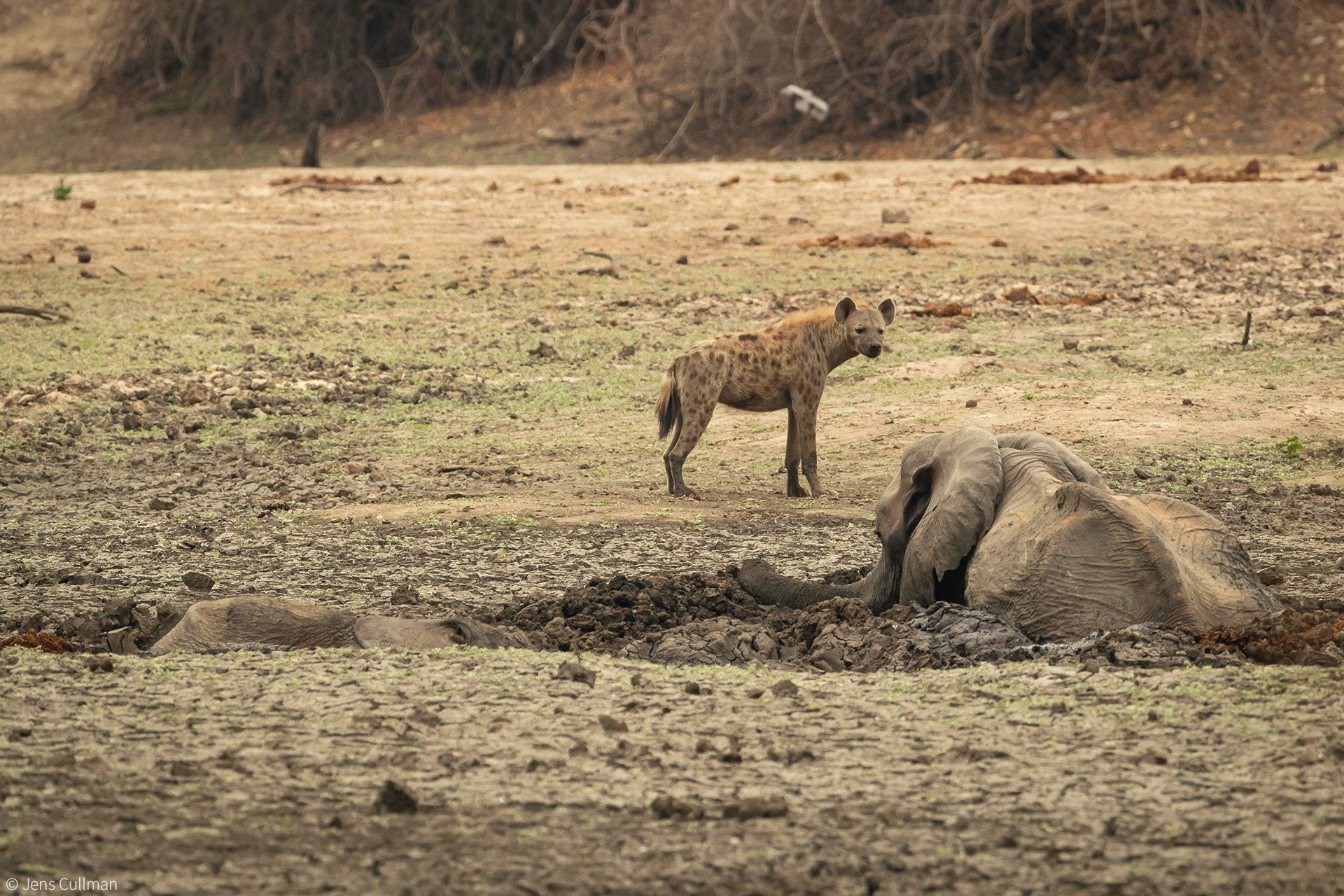
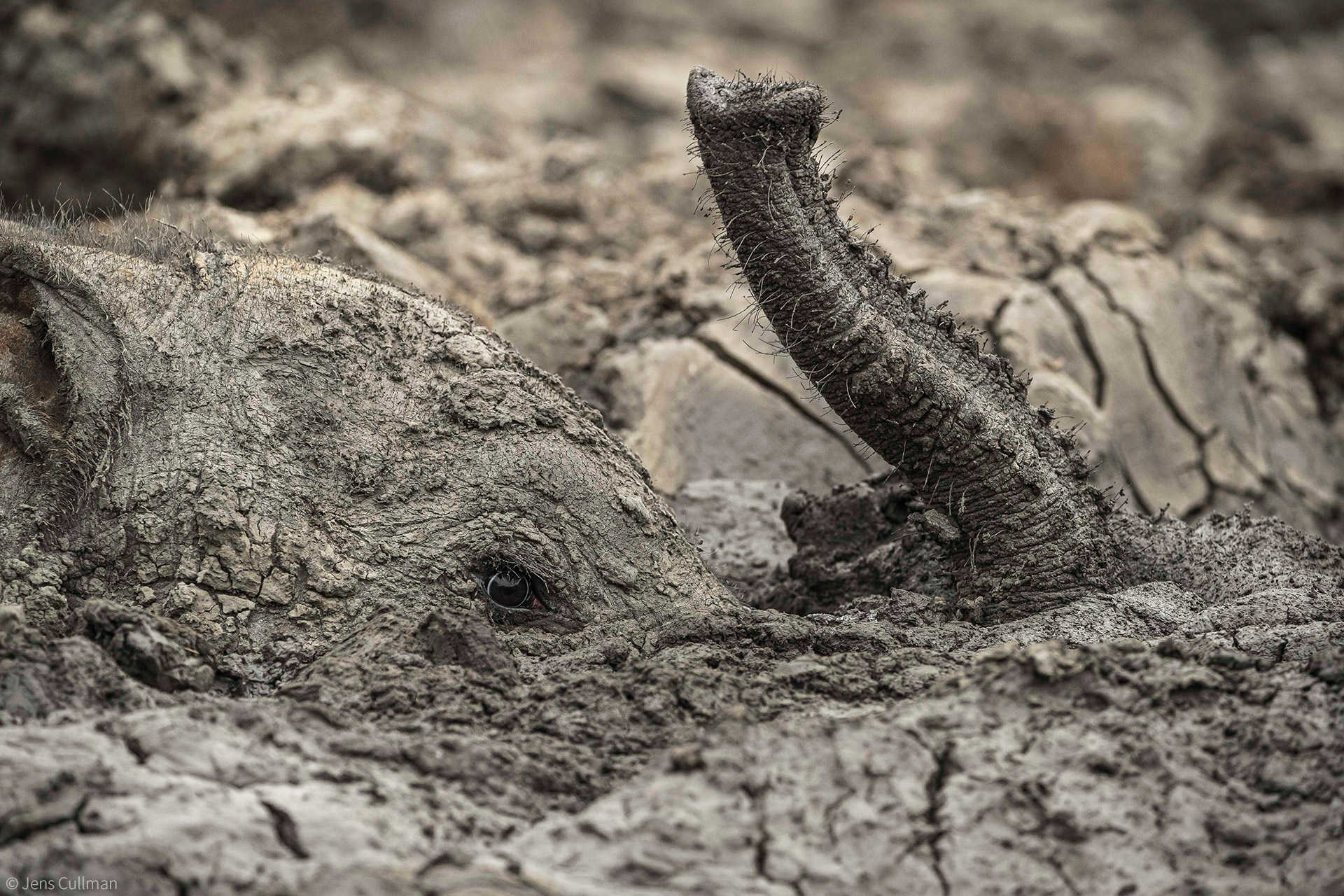
ABOUT THE PHOTOGRAPHER, JENS CULLMANN
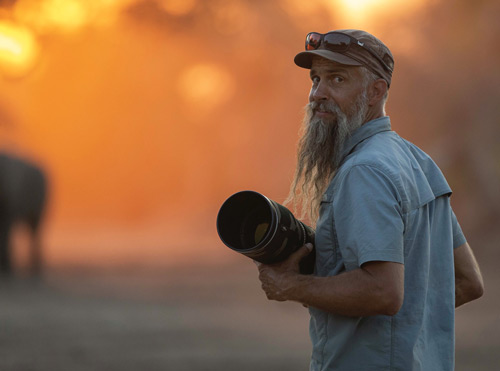 Jens Cullman is a German nature photographer. “It takes a lot of passion to capture one magical moment in the wild. Sometimes I wait for many hours in oppressive heat and have no luck. At other times the patience is rewarded during a split second of magic. But being ready at all times for that split-second is what makes the difference. Along the way, on this incredible journey, I have gained massive respect and love for wild places, and to accept nature’s ways. The golden hour of the sun, dust in the sky, animals in action right in front of you – this is where I always want to be.”
Jens Cullman is a German nature photographer. “It takes a lot of passion to capture one magical moment in the wild. Sometimes I wait for many hours in oppressive heat and have no luck. At other times the patience is rewarded during a split second of magic. But being ready at all times for that split-second is what makes the difference. Along the way, on this incredible journey, I have gained massive respect and love for wild places, and to accept nature’s ways. The golden hour of the sun, dust in the sky, animals in action right in front of you – this is where I always want to be.”
To comment on this story: Login (or sign up) to our app here - it's a troll-free safe place 🙂.![]()

